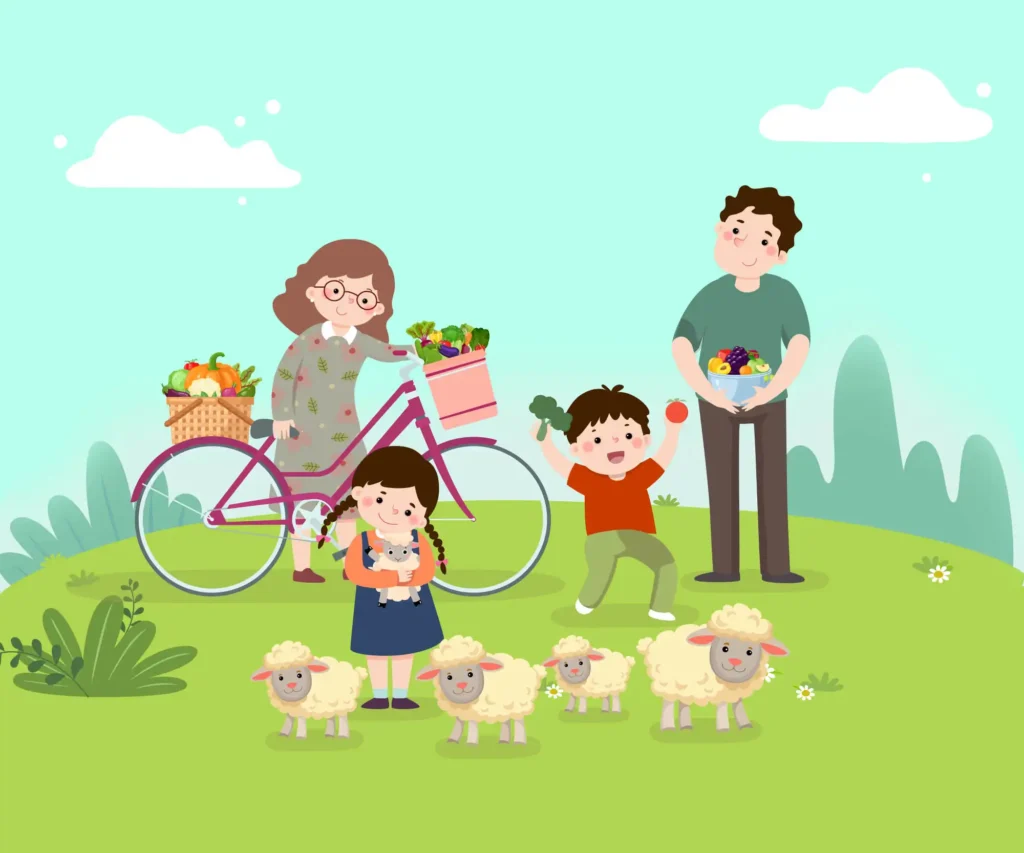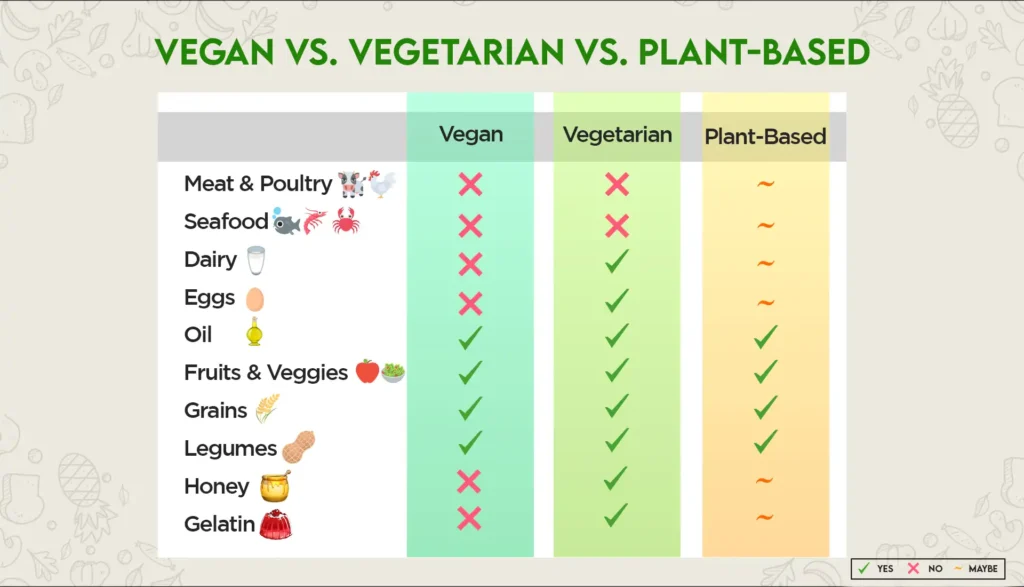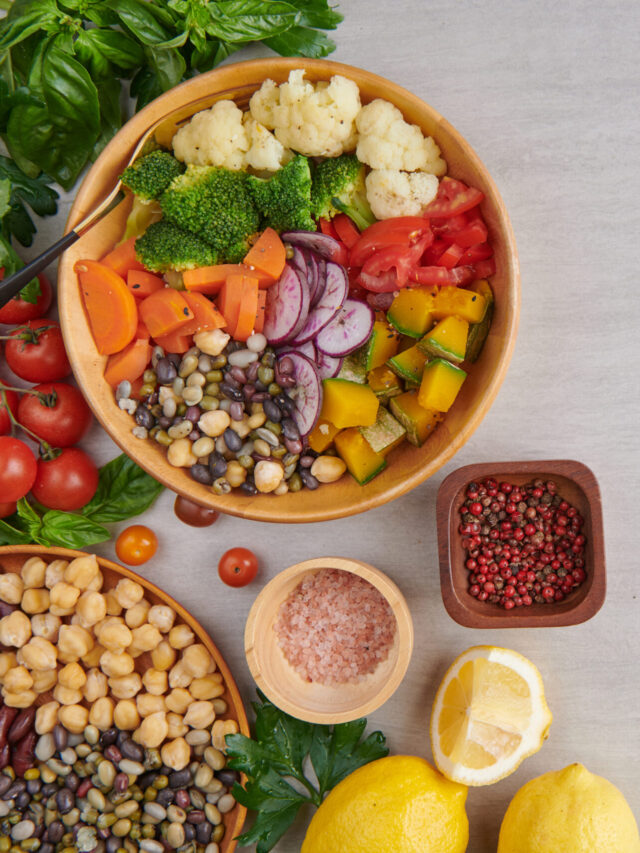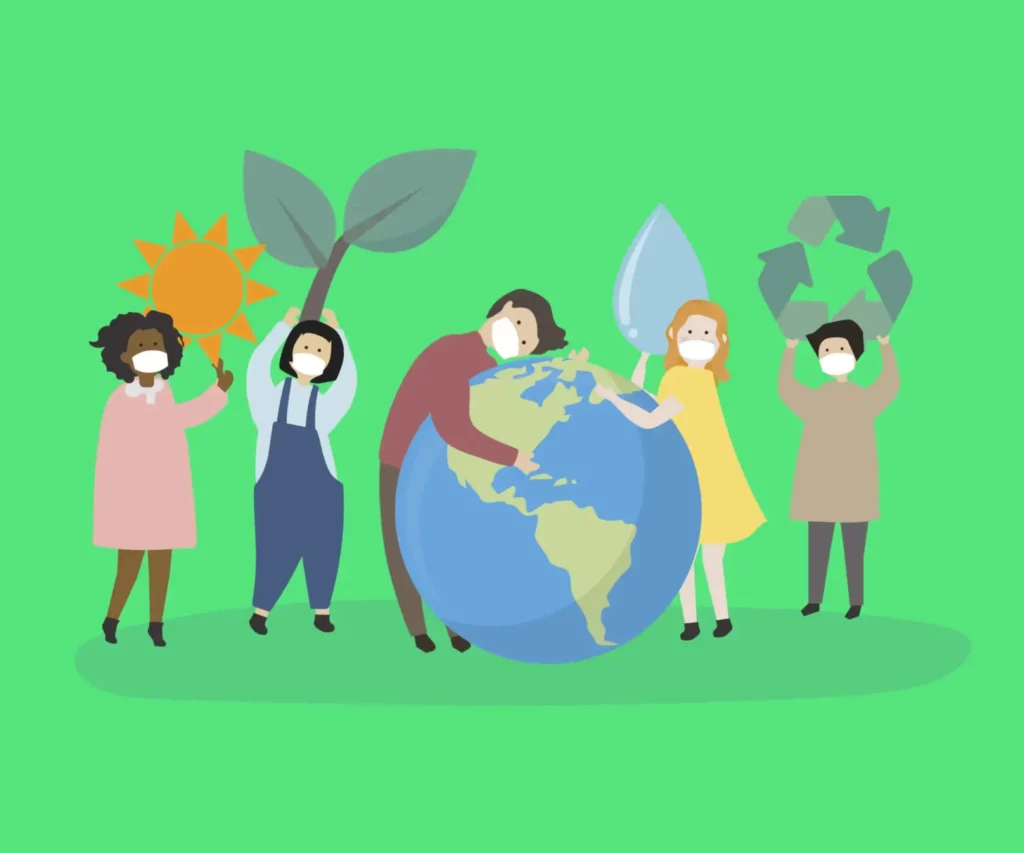
We live in sensitive times. The choice to consume, avoid, overindulge, or regulate is subject to philosophical discussion. And while the debate rages on, there is still no consensus on even the most elementary lifestyle choice: what to eat. Loading a dinner plate never felt so nerve-wracking! The vegan diet claims to have improved the vegetarian diet, and beegans (vegans who eat honey) consider themselves evolved vegans. Pescatarians also want their day in the sun. And flexitarians elbow their way forward to push their nutritional chart. Yet, even as these overwhelming options abound, veganism remains the decade’s most spotlighted diet and lifestyle. According to BBC News, a survey revealed that vegan diets enjoy unparalleled traction that has only steeply inclined in recent years. Read on to learn what veganism is all about, the advantages and disadvantages of a vegan diet, and why more people are turning vegan.
What is veganism?
You’ll find no shortage of variations for this definition. At its core, veganism is the complete abstinence from any animal-derived products. Contained within it is the vegan diet, which steers entirely clear of food obtained from animal sources. A practising vegan limits their consumption to a plant-only diet, including legumes, pulses, seeds, grains, nuts, vegetable oils, fruits, and vegetables. They may extend the practice to boycott inedible animal products such as wool, leather, silk, fur, pianos which have ivory keys, pearls, animal-tested items (like certain brands of detergents, makeup, and tobacco), some tattoo inks (the dyes in them contain charcoal, which is burnt animal bones), and beeswax. But primarily, it is their diet that sets vegans apart.
How is it different from vegetarian and plant-based diets?
The distinction between vegan and vegetarian diets is apparent to most: the acceptance of dairy products in the latter. However, the difference between vegan and plant-based diets may be less familiar. Plant-based, plant-focused, or plant-forward diets have relatively more flexible restrictions, allowing the occasional helping of dairy or lean (animal) protein. In addition, their focus is more on the natural state of the food, favouring unprocessed or less processed ingredients. Instead of dismissing animal products, the plant-based norm is to reduce their frequency and portion size in diets. Check out the following table to know what people who follow these diets eat.

Isn’t the vegan diet nutritionally lacking?
Vegan diets get a lot of flak for not being wholesome. Raid the refrigerator of any vegan friend (everyone has one in 2022!), and you will find jars upon jars of supplements to round off their nutritional needs. So, many people tag this diet as ‘incomplete.’ Vegan nutrition experts work hard to discredit such claims with an objective response. Let’s address some common misconceptions:
Where do vegans get their protein?
Proteins are built up by a series of amino acids, nine of which the human body cannot make on its own. Meat, poultry, eggs, dairy, and fish can provide these amino acids, but plant foods other than soybeans cannot. However, tofu, tempeh, and edamame contribute eight out of the nine amino acids each. Additionally, a wide selection of plant sources comes close to completing human protein requirements. So with a combination of vegan foods and possibly a supplement or two, protein fulfilment is nevertheless possible on a vegan diet.
How does a milk-free diet offer calcium and iron?
Naysayers call into question the bone health of vegans, given that the latter drop dairy from their diet. However, findings show that excessive reliance on cow’s milk may be linked to the weakening of bones. Basically, milk proteins can create an acidic environment inside the body, which needs to be neutralised by the alkaline calcium from our bones. This can drain bones of their calcified density. In the long run, it could even leave you prone to fractures. Fortified non-dairy sources, on the other hand, would not pose this risk.
No fish, no omega-3 fatty acids for the brain?
Omega-3 fatty acids essentially control the dashboard of the human system. They improve vision, combat autoimmune diseases, subdue asthma, and boost the brain’s overall functioning. That is why fish, the most common source of omega-3 for meat-eaters, is touted as the ‘brain food’. But before you bust open that can of sardines, get all your facts in order. Fish actually source their omega-3 from the algae they consume, and they are not omega-3 providers by themselves.
Are plant-sourced omega-3 fatty acids truly wholesome?
The answer to this is not so simple. You see, omega-3s, as their name suggests, work best in a trio. Let’s name these three musketeers ALA, EPA, and AHA. Now, ALA hails from the plant kingdom, while his friends EPA and AHA are mainly natives of the animal kingdom. Also, ALA has the secret power to shape-shift into EPA and AHA when needed. However, this transfiguration is not always efficient. So a vegan will get their ALA from plant sources like walnuts, flaxseed, chia seeds, etc., but will also need pharmaceutical help to supplement their EPA and DHA needs. Still, it is possible to eliminate the animal source and retain the nourishment.
Surely vitamins are hard to come by in a vegan diet?
For this one, the naysayers have it. A vegan spread may not treat you to vitamins D and B12, which your body needs for energy, brain health, and immunity. Supplements are the answer, along with exposure to the morning sun and fortified non-dairy milk – all in conjunction.
Is zinc found in foods other than red meat and poultry?
Yes, in the aisle of beans, nuts, and whole grains. The vegan counter bursts forth abundantly with zinc-bearing food groups, legumes being chief among them. Three moderate helpings of chickpeas can deliver your daily zinc requirement.
What are some reasons people turn vegan?
Experimenting with veganism has stirred its own mania, inspiring the #30DayVeganChallenge, #TheVeganWeightLossChallenge, and so on, where non-vegans temporarily put on the vegan hat just for the sake of the experience or a short-term goal. Hardcore vegans, however, cite any or all of these as their reason(s).
1. Veganism has environment-protecting potential
Mainly (but not exclusively) composed of marine biologists, conservationists, and ecologists, practitioners of veganism sympathise with environmental causes. They understand the need to protect animal species from human rampage. These are all-around vegans whose vegan choices go beyond their pantry. Veganism wears the crown for being the strongest neutraliser of food-related gas emissions. One estimate claims that greenhouse gas emissions could be brought down by three-fourths if everyone in the world went vegan, and the world hunger situation could radically improve. As such, its sustainability quotient is no doubt a significant factor, especially in the post-COVID timeline.
2. Vegan diets have health benefits
Rich in fibre, antioxidants, and all the goodness of phytonutrients (plant-derived nutrients), the vegan diet promises a broad range of health advantages. Lowered cholesterol and reduced cardiac risks are only the beginning. The phytochemical content in a vegan diet aids in the fight against cancer. In the struggle with obesity, a fibre-rich vegan diet offers a BMI-regulating feature. Besides this, it replenishes the skin, controls the chances of type-2 diabetes, and diminishes arthritic pain. Quite the wellness package, you’ll agree.
3. The moral and ethical fight
Any vegan activist will be quick to remind you of the suffering, violation, and deaths of animals that happen in order to cater to selfish and aggressive human needs. Those who choose veganism for ethical reasons consider it a ‘kind’ solution to animal cruelty. They also believe it is the answer to speciesism and that it coaxes the human race into a more considerate lifestyle.
4. The philosophy behind veganism
The vegan narrative often aligns with any movement that opposes bigotry of any form. Along with animal rights, it becomes an advocate for exploited or marginalised groups. The reasoning here is, “You only oppress what or whom you consider your inferior.” Vegan philosophy uses this same reasoning to condemn the practice of consuming meat and animal products. It, therefore, creates a conversation about food politics and social justice movements. Understandably, this is not something that can be resolved in a single podcast or rally. It requires a serious discussion at length.
Veganism has ascended in the ranks as a subject that divides opinion like no other. Its principles, however, submit a case for global harmony. And given its verifiable health credits, veganism does carry its own weight as a substantial lifestyle, proving it is not just a hot fad.



